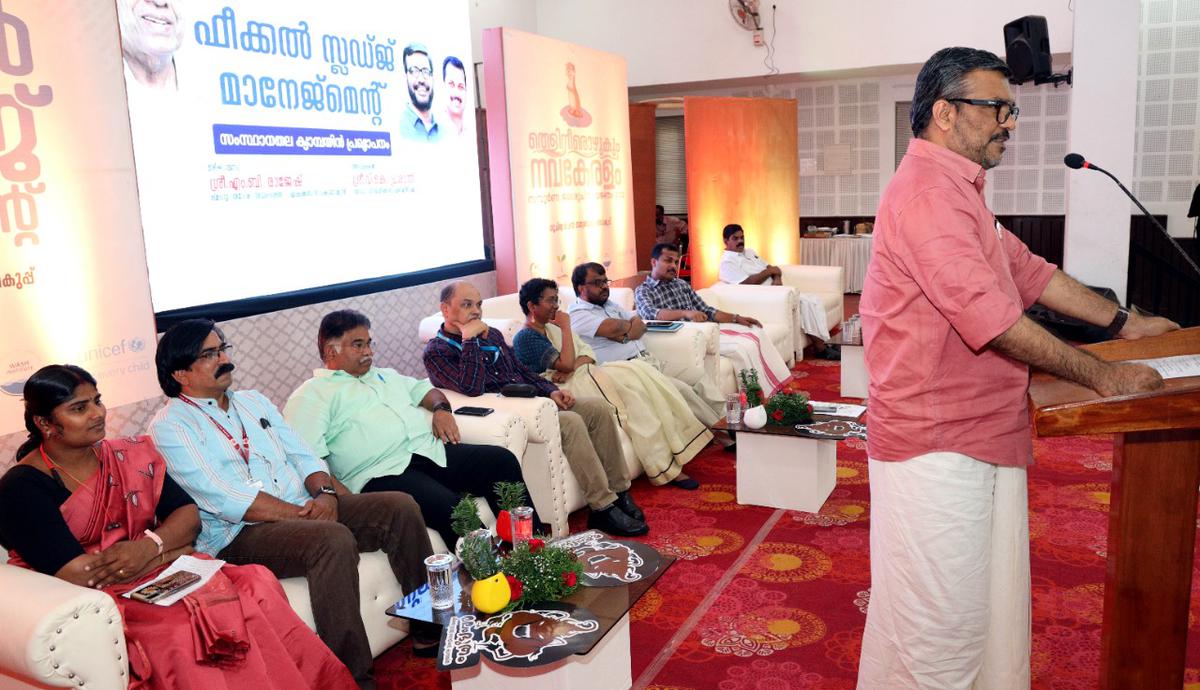
Need to educate people on the urgency to treat solid waste scientifically: Minister
The Hindu
An awareness campaign titled ‘Malambhootham’ is being organised jointly by the Local Self Government department and the Suchitwa Mission with the UNICEF WASH institute
THIRUVANANTHAPURAM
Minister for Local Self Governments Institutions (LSGI) M.B. Rajesh on Wednesday launched a campaign to raise public awareness on the need for scientific treatment of solid waste including faecal sludge.
The awareness campaign titled ‘Malambhootham’ is being organised jointly by the Local Self Government department and the Suchitwa Mission in association with the UNICEF Water Sanitation and Hygiene (WASH) Institute.
Mr. Rajesh said that Kerala was going through a serious situation in which all its water sources were polluted. He called on the local bodies to intervene effectively to overcome this.
“The civic bodies should create awareness among the public to prevent the dumping of faecal waste into water bodies, which has led to an alarming rise in the percentage of coliform bacteria in water bodies. Though there are scientific management techniques to handle these waste material, attempts to set up such plants are often faced with protests. The local bodies can intervene to bring about a change in the mindset of the people. The State government will provide the required funds for all the civic bodies that will identify suitable land for such projects. The Thiruvananthapuram city Corporation’s sewage treatment plant at Muttathara is a model for all civic bodies,” said Mr. Rajesh.
He said that the awareness campaign was aimed at educating the public that the waste remaining untreated was the biggest threat to them, rather than a plant that was meant to treat the waste. The campaign was a continuation of the Suchitwa Mission’s ‘Thelineerozhukum Navakeralam’ campaign to clean up the State’s water bodies. As many as 80% of the State’s water bodies were found to be polluted with faecal matter in tests conducted as part of the campaign. Even wells in residential compounds were similarly polluted. The government decided to urgently take up the campaign in this context.
The State government aimed to set up around 28 treatment plants, with two in each district, in the next two years. Waste from septic tanks in houses had to removed and cleaned once every three years. Mr. Rajesh said that faecal sludge management plans would be prepared for each district and each local body. V.K. Prasanth, MLA, presided over the function. Local Self Government department Additional Chief Secretary Saradha Muraleedharan delivered the keynote address.













